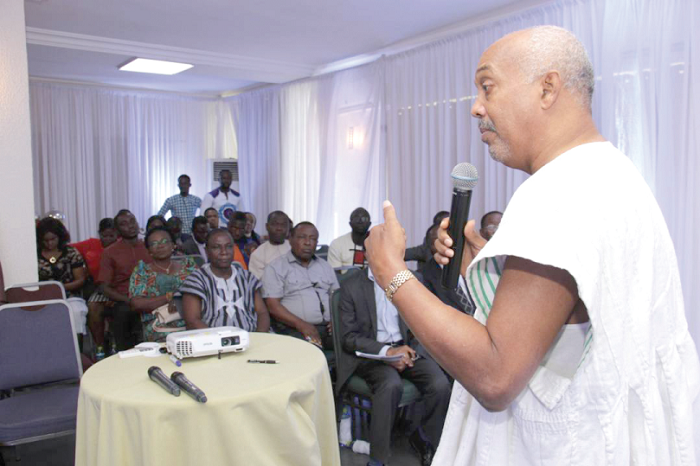
Deal with security threats to avoid escalation - Discussants urge African govts
A conference to discuss security and development challenges in Africa, particularly the rising issue of terrorism has been held in Accra with a call for urgent attention to the menace to prevent its escalation.
The Organisation and Security Group of Africa (GSGA) organised the event which created the platform for security and governance experts to dialogue on the way forward for Africa in terms of addressing development issues.
It was on the theme: “What Africa needs to do to rise economically and politically”.
Speaking at the conference, the President of GSG Africa, Mr Heshbon Opata, stressed that if the issue of terrorism was not properly dealt with, it could have a rippling effect on the continent.
Making a presentation on the topic “The ISIS-Boko Haram synergy and the way forward”, Mr Opata said ISIS was making efforts to use Boko Haram in Nigeria to carry out its deadly attacks, especially in West Africa”.
“There was a pledge of allegiance by Boko Haram to ISIS in 2015 where the insurgency group in Nigeria was to serve as an affiliate of ISIS in West Africa. This poses a threat to the region,” he said.
In order to efficiently deal with the rising terrorism in Africa, Mr Opata said there was the need for African governments to create a system for institutions to partner one another in the area of security.
He also suggested the introduction of security as a subject in basic schools in the West African sub-region, adding “the next generation should be taught basic things on security and how to use their knowledge and intelligence to protect themselves and their respective countries.”
Role of women
Speaking on the role of women in the development of the continent, the Chief Executive Officer of Network Women in Growth Ghana, Mrs Mawusi Nudekor Awity, stressed the need for women to be given equal access to top positions.
She said women were equally as competent as men but unfortunately, “we have not given them the chance to show their uniqueness,” saying “women in our part of the world face difficulties in rising up the political ladder not because they are not competent but because they are often not given the chance.”
For his part, a social analyst, Mr Sydney Casely-Hayford, said until Africa was able to prove by tangible results that the continent was capable of managing its own affairs, “we have no business pointing accusing fingers at Europeans.”
